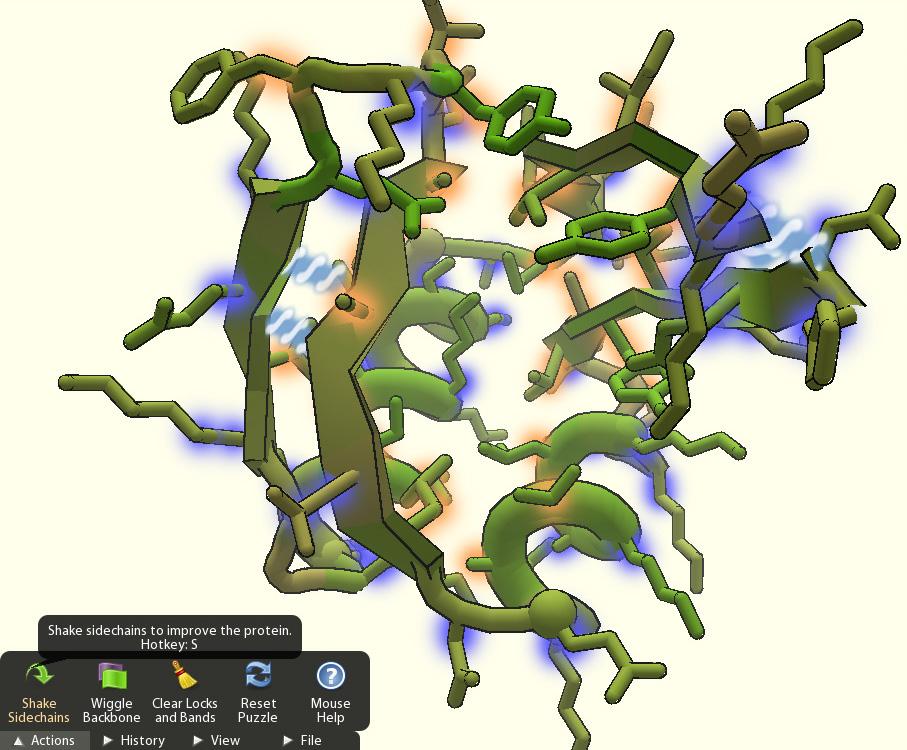Online Gamers Make Discovery in HIV Battle
Last weekend, the journal Nature Structure & Molecular Biology published a key discovery in the study of HIV — and it was made with the help of online gamers.
They were playing Foldit, a game which challenges players to figure out the structures of real enzymes and proteins. One of those puzzles was a protein that causes AIDS in rhesus monkeys that had stumped scientists for 15 years. Foldit gamers solved it in just three weeks.
“We are so proud of everything that you Foldit players have accomplished already,” administrators posted on the game’s site, “and we hope that this article will show the world the power of citizen science!”
A group of scientists at Washington University developed the game in 2008. They were studying proteins, struggling to understand their structures. “Proteins are essentially miniature machines that carry out almost all the important jobs in your body,” biochemist David Baker told Studio 360’s Sarah Lilley. “Like any machine, the way the machine works depends very much on its shape and geometry.”
However, even with the most advanced microscope, it’s impossible to actually see the intricacies of how the parts of an protein fit together. And if you don’t know how the parts fit together, you don’t know how the protein works. Luckily, every protein follows one rule: given the particular amino acids that make up its form, the protein is folded into the tightest, most compact ball those sets of parts can jam into. A computer can run algorithms and test different combinations to find that shape. But it’s much more efficient for a human — who can actually navigate three-dimensional space — to use what they can see to help them make guesses about what might fit where.
That’s where Foldit comes in. Players try folding the protein into compact shapes, and when all the parts fit together to make the smallest, most compact form possible, voila! You have the shape of your protein. “Some people have actually described the game as Tetris on steroids,” said scientist Zoran Popovi.
Listen to the story here:
“Games provide a framework for bringing together the strengths of computers and humans,” Seth Cooper, one of Foldit’s developers, told the AFP. “The results in this week’s paper show that gaming, science, and computation can be combined to make advances that were not possible before.”
Video: How to play Foldit
We want to hear your feedback so we can keep improving our website, theworld.org. Please fill out this quick survey and let us know your thoughts (your answers will be anonymous). Thanks for your time!
